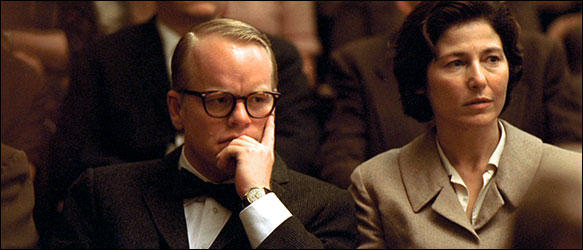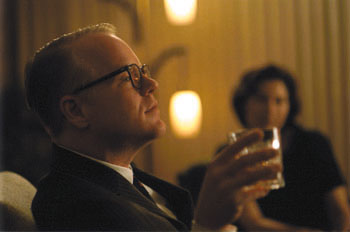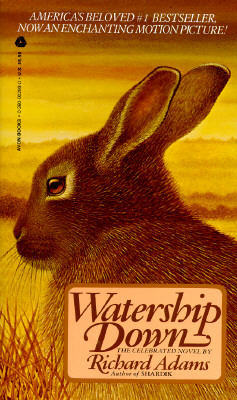“Granted, some things require more involved assessments (like, say, James Joyce: I find his early work unparalleled in its style and its evocation of emotion, while his later writing became willfully opaque in a manner that leaves me cold). But other things don’t require this sort of elaboration (like, say, John Grisham: He sucks).” In Slate, my friend Seth Stevenson writes in defense of the word “suck.”
Tag: Authors
Moloch whom I abandon! Wake up in Moloch!
“Ginsberg once called the poem ‘an emotional time bomb that would continue exploding in U.S. consciousness in case our military-industrial-nationalist complex solidified.’ So it has been.” Slate‘s Stephen Burt ruminates on the fiftieth anniversary of Allan Ginsberg’s Howl.
Plot Foiled.
A quick book bash: I wasn’t going to write about Philip Roth’s The Plot against America, which I read a few weeks ago, until seeing C.S.A tonight crystallized my problems with it. I should say up front that I run hot and cold on Roth — I quite liked Portnoy and American Pastoral, but kinda loathed Goodbye, Columbus. And, while The Plot Against America is getting good reviews all around, I had a strongly adverse reaction to it. For those of you who haven’t heard anything about it, Plot describes an alternate USA in which famed aviator and rabid isolationist Charles Lindbergh defeats FDR in 1940, makes peace with Hitler, and begins a pogrom of sorts against Jewish-Americans, forcibly enrolling Jewish children (including the narrator’s brother) in Americanization programs and, eventually, attempting to relocate Jewish families to the Midwest. As per Roth’s usual m.o., the tale is told from the perspective of a Newark family trying to find their way — not very successfully — amid the deteriorating events.
As alternate histories go, it’s a great idea for a book, and I was really looking forward to seeing what Roth did with it. But, unlike CSA, which clearly showed an attentiveness to both what happened and what might have happened, Roth here has written an alternate history without seeming to give a whit about the history. In short, I found the book stunningly, almost narcissisticly, myopic. One gets the sense from reading Plot that the rift beween Jews and Gentiles in America was not only the most significant but the only ethnic or cultural schism in FDR’s America. This is not to say anti-semitism wasn’t rampant and widespread at the time — Of course it was, as attested by Father Coughlin, Breckinridge Long, and Lindbergh himself, who — in a speech that tarnished his reputation much more than Roth lets on — blamed support for the war on the “large ownership and influence [of Jews] in our motion pictures, our press, our radio, and our Government.” But, in The Plot Against America, no one else seems to even exist besides Jews and (White) Gentiles — To take the two most notable examples, there’s no mention of the fact that Africans-Americans were being lynched in staggering numbers in this period (the only lynching mentioned is that of Leo Frank), or that we actually did intern Japanese-Americans during the war. (As a point of contrast, C.S.A.‘s central thesis is about slavery, but it moves beyond white-black relations to explore, or at least reference, the place of Asians, Latinos, and gay Americans in the new Confederate system.)
This isn’t about tokenism — it’s about doing justice to the people and the history of the period you’re writing about. And, frankly, the history in The Plot Against America strains credulity time and time again. I’ll skip over the final twist so as not to give it away, and because it’s so ridiculously implausible that Roth couldn’t have intended for us to take it seriously. But, even despite that, Lindbergh’s popularity — and the public’s taste for isolationism — by 1940 seem significantly overstated throughout. (To take one example, there is no way that the Solid Democratic South would up and vote GOP that year — With the Civil War only recently out of living memory, the Dems could’ve run a wet paper bag in the South, so long as it wasn’t of the party of Lincoln and didn’t threaten to upset the Jim Crow racial order. That didn’t even begin to change until Strom in ’48.) And, while Walter Winchell plays a large role here in calling out the Nazi-American pact and resulting Jewish pogrom, he seems to be the only public figure in America doing so. Where’s everyone else? It doesn’t make sense.
Finally (and I’ll admit, this really ticked me off), Plot basically commits a character assassination of progressive/isolationist Burton Wheeler of Montana, who here appears as Lindbergh’s Vice-President (or, more to the point, his Cheney — I’m assuming that’s what Roth was getting at.) At a certain point in Plot, we’re supposed to believe that Wheeler — a guy who refused to prosecute alleged dissenters as Montana Attorney General during the hysteria of WWI, helped lead the investigation into the government corruption of Teapot Dome, and turned on FDR because he thought court-packing was an unconstitutional powergrab — is going to, out-of-the-blue, declare martial law and start rounding people up? That makes zero sense, and is, in effect, a slander on a real historical figure. Roth is obviously one of America’s most gifted writers — but, lordy, I thought The Plot Against America needed more research, more attention to historical nuance, and more sense that injustice and suffering in this country has often run along more than one axis of discrimination.
Piano Man.
I’m a bit behind on this one: Lisa Halliday, an old friend from college and Let’s Go days, recently had her short story, Stump Louie, published in the Paris Review. Congrats!
The Truman Show.

“Ever since I was a child, folks have thought they had me pegged, because of the way I am, the way I talk. And they’re always wrong.” Capote, starring Philip Seymour Hoffman, is a somber and compelling character study of the eponymous author, during the six years he spent in Kansas researching his renowned “non-fiction novel” of true crime, In Cold Blood. It’s a slow-moving film, but a memorable one. I don’t think I’d want to sit through it again anytime soon, but I do expect it’ll be on the short list for Best Actor nods come awards time.
To be honest, I have no memory or sense at all of Truman Capote, so I can only assume that Hoffman’s performance here, with his fey, lilting voice and precise, carefully-constructed mannerisms, is of a piece with the real author. Regardless, Hoffman’s Capote cuts a complex and striking figure that’s hard to take your eyes from — He’s at once vainglorious and needy, extroverted and remote, compassionate and manipulative, convivial and detestable. Intrigued by a newsclipping of four brutal 1959 murders, he and childhood friend Harper Lee (Catherine Keener) venture to the stark landscape of Holcolmb, Kansas, to investigate. Capote soon realizes that that story of the murders could make for a new kind of novel. But, as he comes to befriend the killers — most notably Perry Edward Smith (Clifton Collins, Jr.) — he also discovers that the problem with writing a non-fiction novel is that the characters have lives of their own, and events may not follow the path you necessarily intend.
This is Hoffman’s film through-and-through, and, like I said (sorry, David Strathairn), I expect that he’ll be a tough act to beat come awards season. Still, Capote is also anchored by a strong sense of place and by many fine supporting performances — most notably Collins and Keener — but also Chris Cooper, Bruce Greenwood, Bob Balaban, and The Wire‘s Amy Ryan. Strangely enough, Capote also bookends nicely with last week’s Jarhead, and crystallizes some of my problems with that film. While we were supposed to feel for Pvt. Swofford’s predicament that he’s gone to war and (sniff) can’t actually kill anybody, this film shows the devastating emotional consequences of a not-unrelated predicament — Capote can’t finish his work of genius until “the story ends,” so to speak. And, as Hoffman emphatically illustrates by the end of this powerful film, “More tears are shed over answered prayers than unanswered ones.”

Queen of the Blessed?
“‘I promised,’ she says, ‘that from now on I would write only for the Lord.’ It’s the most startling public turnaround since Bob Dylan’s ‘Slow Train Coming’.” Goth-lit-queen Anne Rice has been born again, and it doesn’t involve coffins or blood transfusions. Indeed, she’s now apparently halfway through a trilogy on the life of Christ, “the ultimate supernatural hero… the ultimate immortal of them all“…but she notes it won’t be like Left Behind.
Googlarians unite.
“What’s going on? Google has become the new ground zero for the ‘other’ culture war. Not the one between Ralph Reed and Timothy Leary, but the war between Silicon Valley and Hollywood; California’s cultural civil war. At stake are two different visions of what might best promote authorship in this country. One side trumpets the culture of authorial exposure, the other urges the culture of authorial control.” University of Virginia Law professor Tim Wu surveys the controversy over Google Print, and makes a cautious plea for writers and academics to get behind the project.
Harry Potter and the Doppelganger Scribes.
“Forgive me, he had it coming…so beardy and so old.” By way of LinkMachineGo, the Guardian accepts rewrites of the climactic moment of Half-Blood Prince in the style of various famous authors. Some of these are really funny. [Massive book spoilers, obviously]
Rabbit Run.
 By way of Cliopatria, What book are you? Sixty-four different choices, and they aren’t as readily guessable as in most online quizzes. As it turns out, I’m “Watership Down…Though many think of you as a bit young, even childish, you’re actually incredibly deep and complex. You show people the need to rethink their assumptions, and confront them on everything from how they think to where they build their houses. You might be one of the greatest people of all time. You’d be recognized as such if you weren’t always talking about talking rabbits.” Ah, rabbits.
By way of Cliopatria, What book are you? Sixty-four different choices, and they aren’t as readily guessable as in most online quizzes. As it turns out, I’m “Watership Down…Though many think of you as a bit young, even childish, you’re actually incredibly deep and complex. You show people the need to rethink their assumptions, and confront them on everything from how they think to where they build their houses. You might be one of the greatest people of all time. You’d be recognized as such if you weren’t always talking about talking rabbits.” Ah, rabbits.
The Education of Douglas Adams.
“That he was born is just one of the many undeniable facts about the life of the late Douglas Adams –author, humorist, raconteur, speaker, and thinker (although it should be noted that, on at least one parallel Earth, Mr. Adams was born a spring-toed lemur with a predilection for grassy fields and the works of Byron — a poetic lemur whose work was not terribly springy).” With two days to go until Hitchhiker’s — you have picked out a towel by now, right? — IGN assembles a worthy cast of Adamsian roustabouts — including Terry Jones, Neil Gaiman, Michael Nesmith, and Stephen Fry — to offer their remembrances. (Unfortunately, Graham Chapman could not be reached for comment.)

